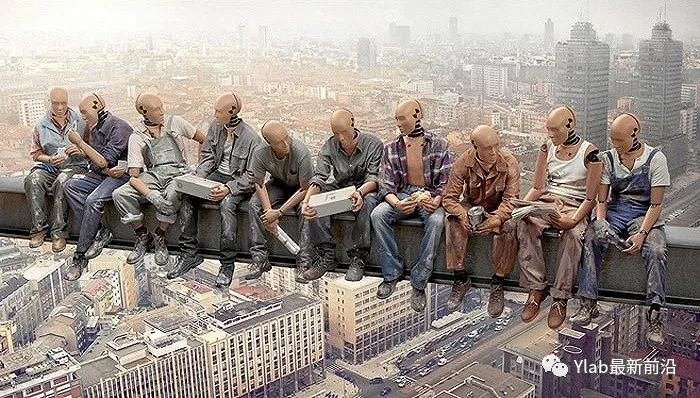The long-term challenges and threats of artificial intelligence to humanity
In the last issue, we discussed AI-based information recommendation systems, which are somehow domesticating human groupthink, making human biases deeper and less inclusive. This is an immediate risk for AI that needs human attention. As an individual, through extensive reading and in-depth thinking, we can expand the breadth of our thinking, so as to resist the labeling of individuals by artificial intelligence and reduce personal prejudice. Interested in reading about Machine Awakening? Immediate risks of artificial intelligence to humans? But for mankind as a whole, the further development of artificial intelligence is beneficial to mankind. Artificial intelligence is still facing many doubts in many industries, and even the advancement in some industries is difficult due to its inexplicability. But artificial intelligence as an effective means, especially when data acquisition is so convenient today, the widespread adoption of artificial intelligence is happening or is inevitable. Many industries, like those occupations that have been replaced by machines due to productivity improvements, will go into history and disappear completely.
Humans have experienced too many precedents of machines replacing humans due to increased productivity. In several industrial revolutions in particular, machines replaced part of human abilities. Looking back at the long history of human development, in fact, the real drastic changes to human life occurred mainly in the three industrial revolutions in modern times. Before that, humans were only using nature, but the three recent industrial revolutions have completely changed the shape of the earth. From the perspective of those people at the time, it was difficult for them to imagine or accept this reality before the replacement of labor by machines on a large scale. Likewise for artificial intelligence, based on its potential, it is also inevitably changing the shape of society. A few years ago, I believed that in some areas, humans could not be replaced by artificial intelligence after all. Until artificial intelligence starts to create, generate images, write music, and even help people program. AI is not omnipotent, but AI will further develop and surpass human capabilities in some or most professions.
So the question is, will artificial intelligence replace humans?
The value of an individual to society includes physical value, skill value, and cognitive value. Among them, the value of physical strength has basically been replaced by machines during the industrial revolution. The value of human skills is the personal ability acquired through acquired learning and training. These professional skills are exactly the group of people that are being replaced by automation and artificial intelligence. It should be pointed out that the artificial intelligence we are talking about now actually includes the integration of multiple disciplines such as automation, neuroscience, big data technology, and machine learning. A long-trained pilot was replaced by a fully autonomous aircraft. A doctor with rich experience in X-ray reading was replaced by intelligent image reading technology based on artificial intelligence [1]. In the latter case, the deep learning-based model outperformed the radiologist's image reading ability in 94% of the 124 medical cases, and all the remaining cases were not inferior to the doctor's judgment. With the current automation, artificial intelligence is further developed, and most of the professional skills will be replaced by intelligent machines. The third human ability is cognitive value, which includes emotions, analysis, and communication. At present, in terms of complex problems, human beings can still surpass artificial intelligence with experience. But the goal of AI development is to solve problems that are beyond human capabilities. Especially in application scenarios where big data and artificial intelligence are combined, humans cannot process these huge amounts of data and make reasonable decisions. The application of artificial intelligence in this area is currently facing a key problem, but the problem of interpretability. Artificial intelligence needs to be understood by humans before it can be applied to a problem that humans cannot solve. This has become really interesting.
But at the level of cognitive value, the risk of human beings being replaced is not large. Although AI is learning to understand human emotions. Brain neuroscience, like Elon Musk's recent brain-computer interface experiment, attempts to read and understand human thinking, and then be able to influence and control human thinking. But at the cognitive level, people themselves are still difficult to replace, because human cognition is a kind of group cognition. Alphago's defeat of the Go champion does not mean that humans' interest in Go competition has disappeared. Instead, artificial intelligence may provide additional help to improve the human game of Go. In the entertainment industry, despite the hugely successful virtual female singers like "Hatsune Miku", it is still difficult for humans to be replaced in this regard.

The long-term threat and impact of artificial intelligence on human development
Although artificial intelligence cannot completely replace the value of human beings, the impact of artificial intelligence on human society is inevitable and cannot be ignored. What artificial intelligence and automation technologies are doing is actually taking humans out of the production process. In the industrial production process, human participation will be less and less. People will shift to the consumer side, and even become a pure consumer. In the process of this change, ordinary people will lose their social influence and their own value. In the affirmative action over the past 100 years, the key to the fact that ordinary people can obtain more rights, win the right to vote, and strive for benefits from capitalists through the establishment of trade unions is the extensive participation of the people in the entire production process. In addition to having capital, it also requires the participation of workers to convert it into value. But artificial intelligence squeezes humans out of the production process, making most people lose their value in society. Imagine today's Amazon empire. If the production, transportation, sales, and delivery of products do not require ordinary people to intervene, capital giants will dominate the world. Ordinary people who want to fight for their rights will soon have no bargaining chip, no platform, and no way to gather strength. Stripped from the production process, the people would even lose reason to resist. What ordinary people will face will no longer be the exploitation of elites and capital, but the economic elite will no longer need the people. The people also lost their power. For most individuals, the social value of the individual disappears and becomes an accessory that only consumes the society and does not create any value. Although humanity as a whole still has value as a species, most individuals have lost their social value. The world will become two levels of differentiation. On the one hand, most of the people who have lost social value can only consume but cannot create value; on the other hand, they have algorithms and capital, and they will become the other pole of society. This pole is harmonious. The difference with the current elite is that they will become gods and will be able to control the fate of all the rest. Does the country still exist? Maybe still an issue.
I still remember reading a science fiction novel that won the Hugo Award, "Beijing Folding", which described a similar scene. The human space is divided into several floors, and different people occupy different spaces. The people at the bottom don't even know the existence of the top. And those at the top have the most resources and space, and control everything.
This is not an alarmist, it will be a threat to humanity as a whole. The epidemic in the past two years has accelerated the concentration of social wealth in a few people, even including power. This process will be further accelerated with the push for AI automation. In the process, there is currently no force to change the trend. The ideas of liberalism and globalization that dominated the world in the past need to be replaced by new ideas of society. We need a new mindset to address the long-term threat posed by artificial intelligence.

Reference
[1][Effect of a comprehensive deep-learning model on the accuracy of chest x-ray interpretation by radiologists: a retrospective, multireader multicase study - The Lancet Digital Health] https://www.thelancet.com/journals/landig/ article/PIIS2589-7500(21)00106-0/fulltext.
Like my work? Don't forget to support and clap, let me know that you are with me on the road of creation. Keep this enthusiasm together!

- Author
- More